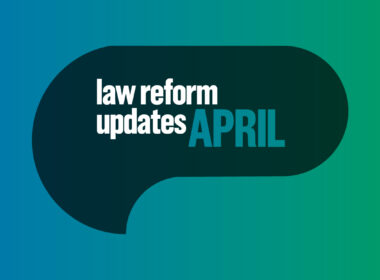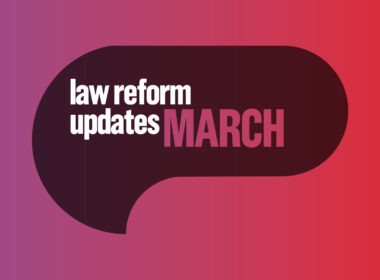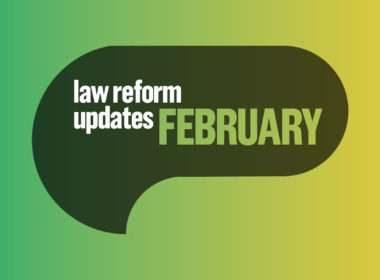Key developments
- Inquiry into the Aboriginal and Torres Strait Islander Voice
- Privacy Act Review Report
- Skilled Migration Reform
- Draft Guidelines for the Provision of Relevant Services (Health and Related Services) in workers compensation and CTP
- IPART Draft Report – Interoperability pricing for Electronic Lodgment Network Operators
- Token mapping
- Draft Fair Work (Statement of Principles on Genuine Agreement) Instrument 2023
- 2023-2030 Australian Cyber Security Strategy Discussion Paper
- Federal Circuit and Family Court Practice Directions
Inquiry into the Aboriginal and Torres Strait Islander Voice
The Indigenous Issues and Public Law Committees contributed to the Law Society’s submission to the Law Council on the inquiry into the Constitution Alteration (Aboriginal and Torres Strait Islander Voice) 2023 (‘Bill’). The Law Society’s comments were directed narrowly to the text of the Bill. The Law Society is of the view that the Bill is an appropriate way to put the question of the Voice before the Australian people.
The submission restated the Law Society’s ongoing support for the three elements of the Uluru Statement from the Heart. The proposed amendment is a modest one, that leaves all questions of design on its ‘composition, functions, powers and procedures’ up to Parliament (proposed s 129(iii)).
This approach would accommodate the need to allow for the Voice as a body to evolve and improve over time, and to respond to the issues of the day. We noted that, in our view, it would be undesirable to entrench a particular form for the body in the Constitution.
However, we also noted that from the perspective of guaranteeing an effective mechanism for consultation between the Voice, and Parliament and the Executive, there are limitations to this approach, including no guarantee that the Voice would remain as a functioning organisation, despite its existence being mandated by the Constitution. Further, the Design Principles provided by the Referendum Working Group, that deal with key matters such as the selection of Voice members, are non-binding. Notwithstanding this, we acknowledged these limitations necessarily arise out of the tension between matters appropriate for constitutional attention, and matters appropriate for Parliamentary consideration and decision, rather than from any deficiency in the Bill.
The submission examined two common concerns raised in respect of the Bill; namely the scope of ‘matters relating to Aboriginal and Torres Strait Islander people’, and the argument that including the executive branch opens the potential for ongoing litigation. The submission concluded the Law Society does not object to the text on either of these matters.




